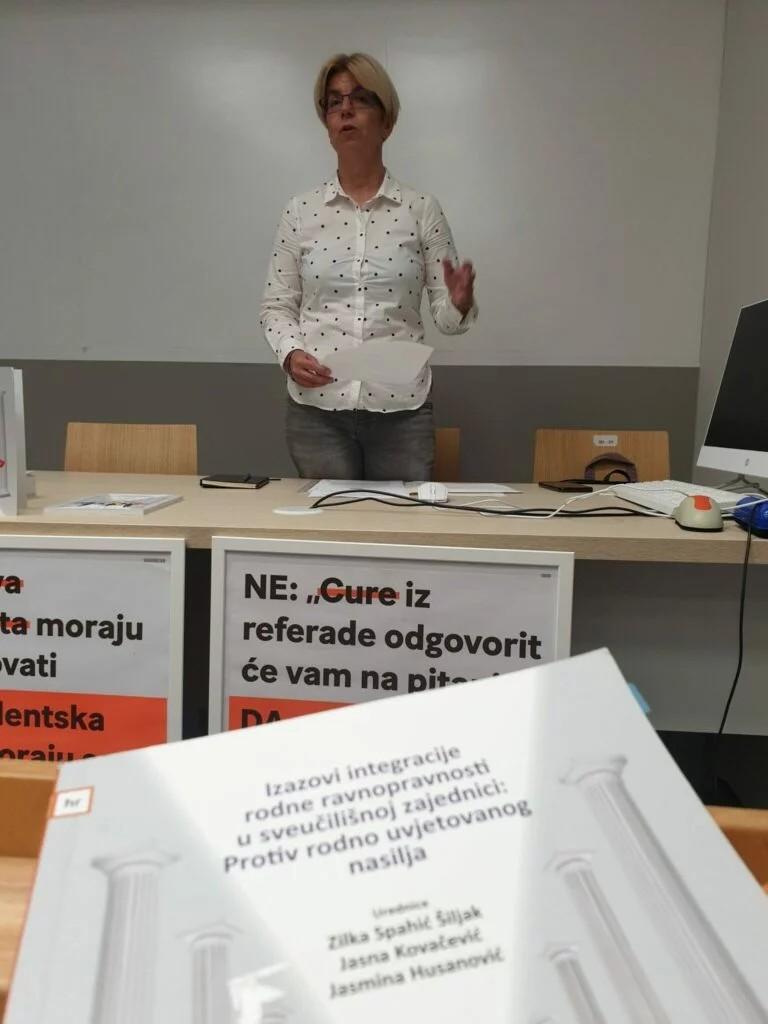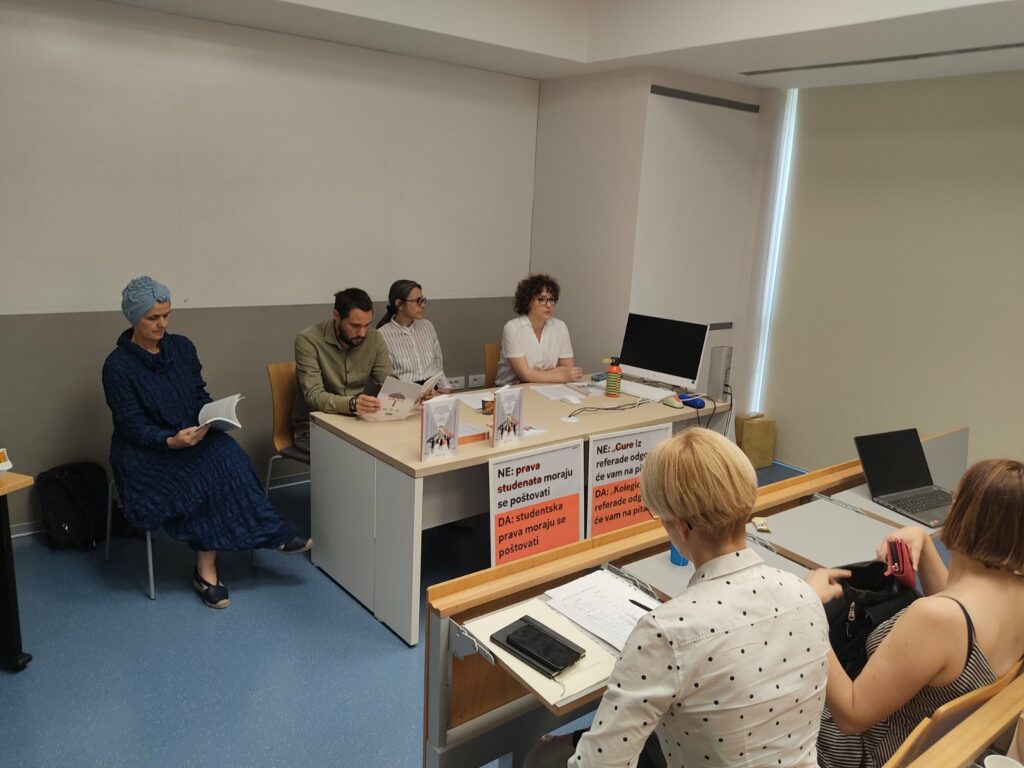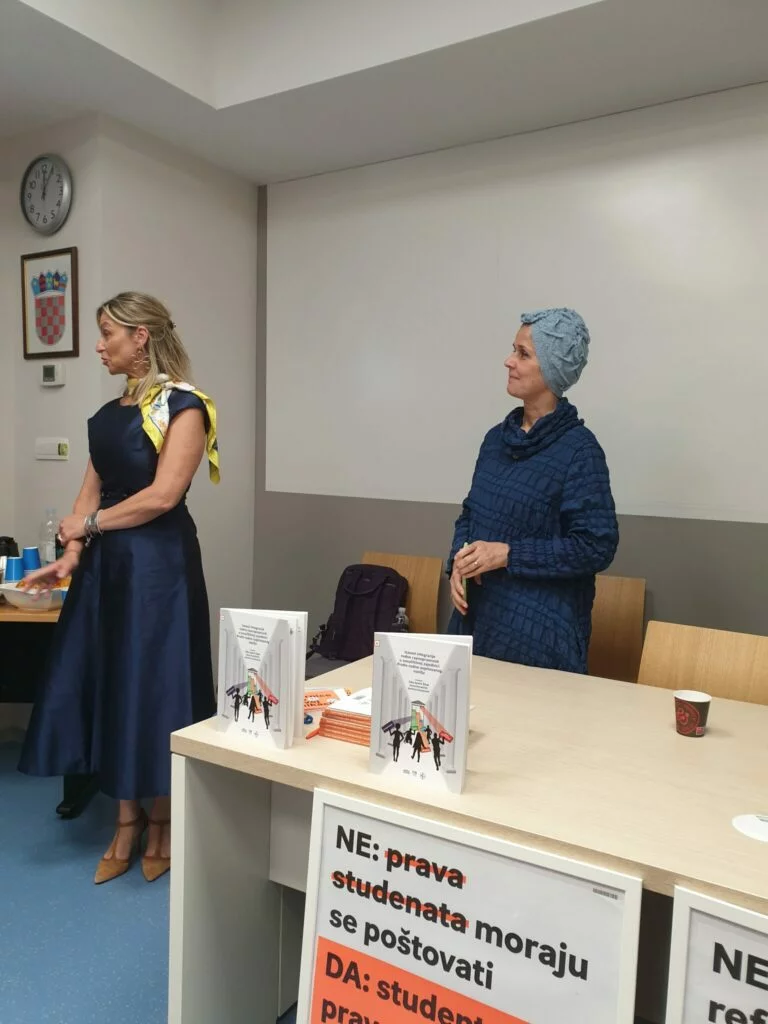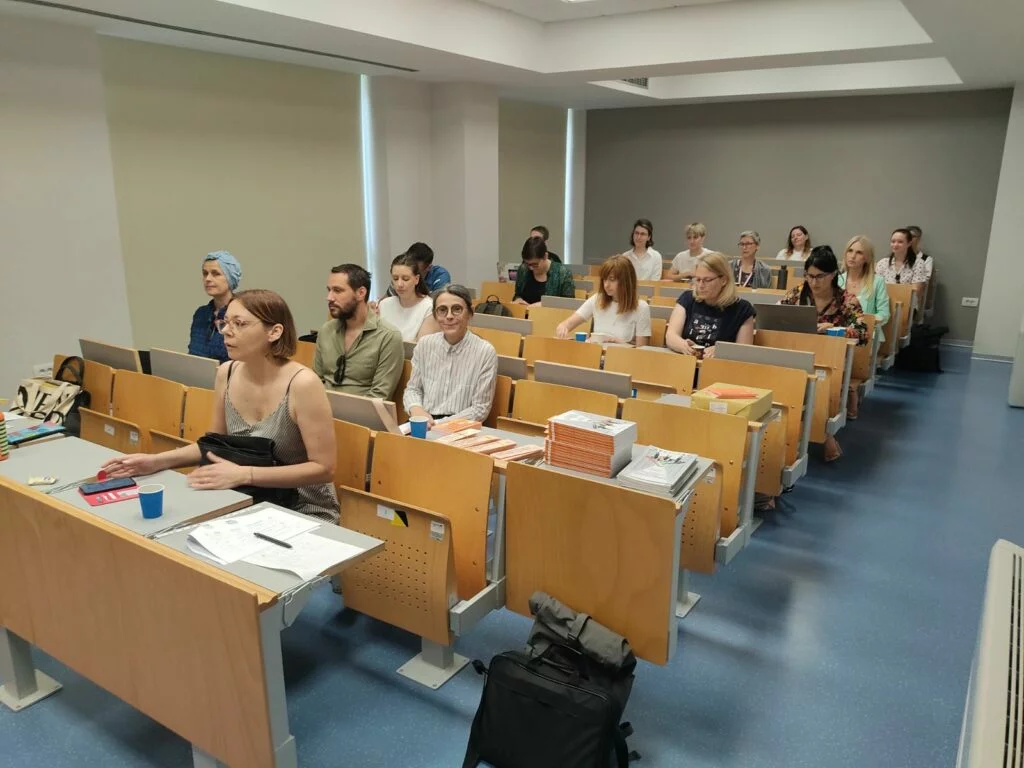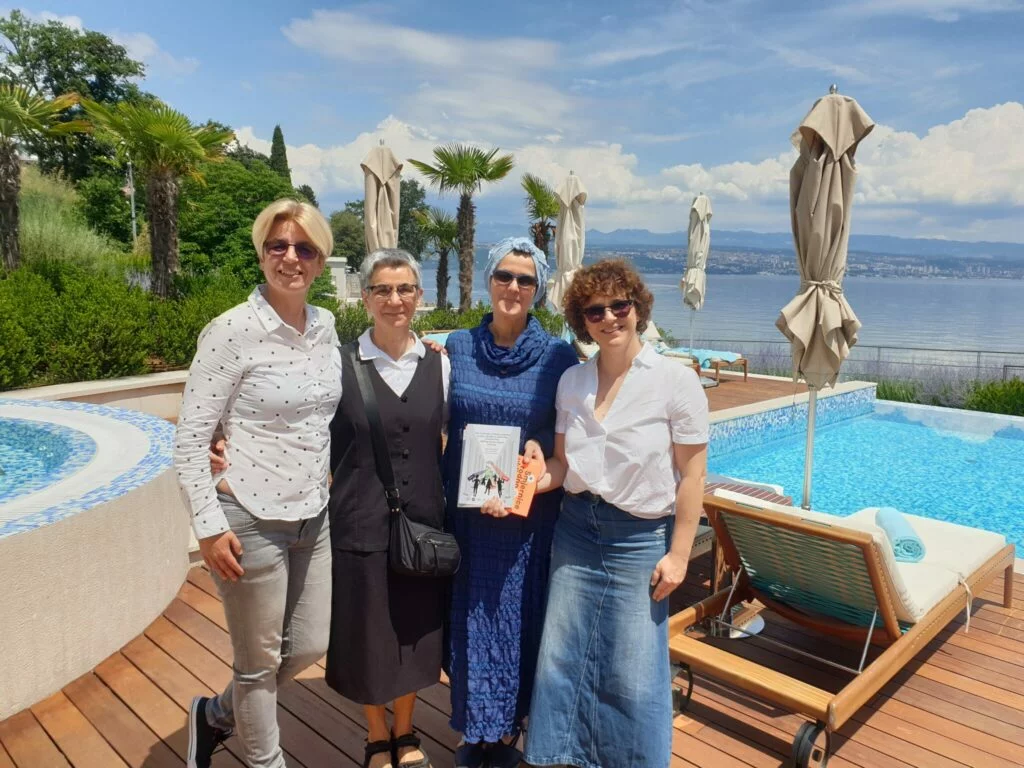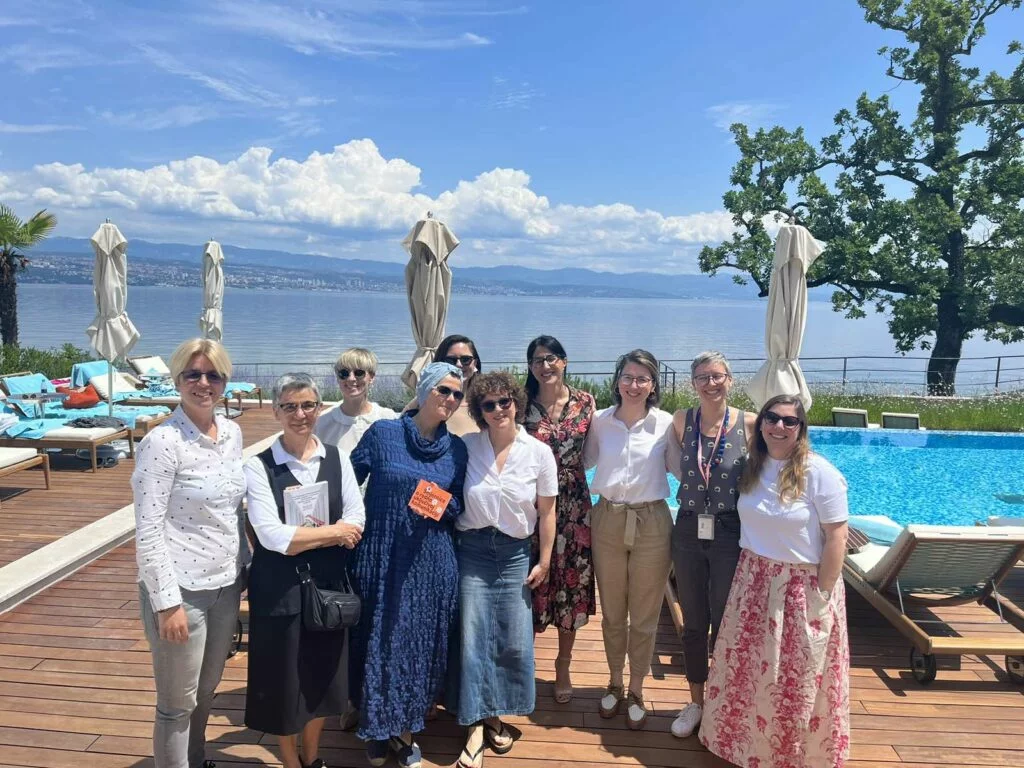As part of the session of the Gender Equality Council of the University of Rijeka, held at the Faculty of Tourism and Hospitality Management on June 14, 2023, the members of the Council and esteemed speakers presented a publication entitled “Challenges of Gender Equality Integration in the University Community: Against Gender-Based Violence”.
This publication is a result of extensive research conducted during the five-year UNIGEM project (University and Gender Mainstreaming), launched in 2021 by the TPO Foundation in Sarajevo. The project aimed to connect universities from the region, exchange expertise, prepare higher education by establishing mechanisms for gender equality, adopt gender equality plans, enrich curricula and programs in the field of gender equality, and sensitize teaching staff and students through various types of thematic workshops and training. 19 universities from Bosnia and Herzegovina, Croatia, Serbia, and Montenegro participated in the project to improve the gender dimension at universities through regional networking and exchange knowledge and experiences through numerous examples and models of good practice.
The publication gives an outline of the results of the first regional project dealing with the challenges of integrating gender equality and the fight against gender-based violence at universities in four countries, involving teaching and administrative staff and students. The results can benefit universities in the creation and improvement of appropriate action policies, institutional norms, and internal procedures related to gender-based violence.
Interestingly, the results of the analysis of both quantitative and qualitative data are presented in the publication in the form of lessons learned with which even the most developed HE institutions can largely identify, and which help in understanding the complexity of the origin, perpetuation, and fight against inequality. Some of the conclusions refer to the challenges of not including gender topics in classes, insufficient knowledge about procedures for reporting and preventing existing gender-based violence, and the existence of a culture of fear, silence, and non-reproach, which results in distrust in institutions. Results on the negative impact of gender-based violence on health, well-being, and careers of both women and men are particularly important, especially given the violence and discrimination directed at vulnerable groups such as ethnic and gender minorities, people from the LGBTIAQ+ community, and persons with disabilities. In addition, gender-based violence has its costs, and the health and economic costs of gender-based violence can be significantly reduced with its prevention.
The publication was presented from the perspective of those who participated in its making, relying on their respective scientific field and social engagement. The speakers were Assist. Prof. Brigita Miloš, Ph.D., from the Department of Cultural Studies of the Faculty of Humanities and Social Sciences in Rijeka, Assist. Prof. Nebojša Zelič, Ph.D., from the Department of Philosophy of the Faculty of Humanities and Social Sciences in Rijeka, and Assist. Prof. Zilka Spahić Šiljak, Ph.D., Head of the TPO Foundation in Sarajevo and academic director of the University Gender Resource Center of the University of Sarajevo. The presentation was moderated by Daria Glavan Šćulac, diversity and inclusivity officer at the University of Rijeka and coordinator of the UNIGEM project for the University of Rijeka.
The promotion was attended by members of the Gender Equality Council of the University of Rijeka, along with Jadranka Rebeka Anić, Ph.D., from the “Ivo Pilar” Institute of Social Sciences, and other participants from the academic and general community. On the same day, Madam Rector of the University of Rijeka, Prof. Snježana Prijić Samaržija, Ph.D., gave her stance on the topic.
The editors of the publication are Zilka Spahić Šiljak, Jasna Kovačević, and Jasmina Husanović. The publication is available at the following link.
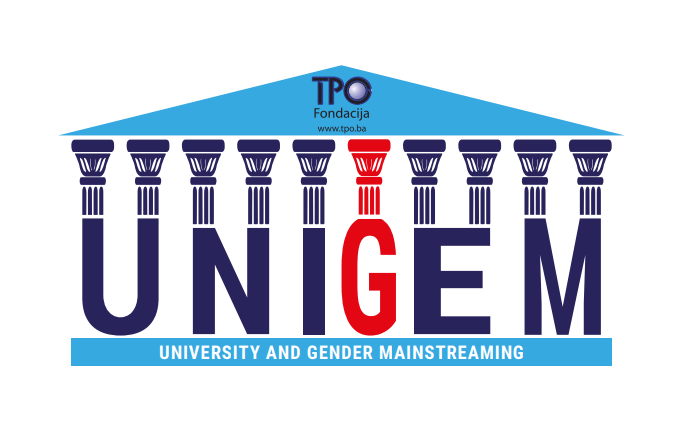
The promotion is part of the activities of the University of Rijeka as a supporting partner in the UNIGEM project (Introduction of Gender-Aware Policies in Higher Education) coordinated by the TPO Foundation from Sarajevo, with the support of the Government of the United Kingdom.
